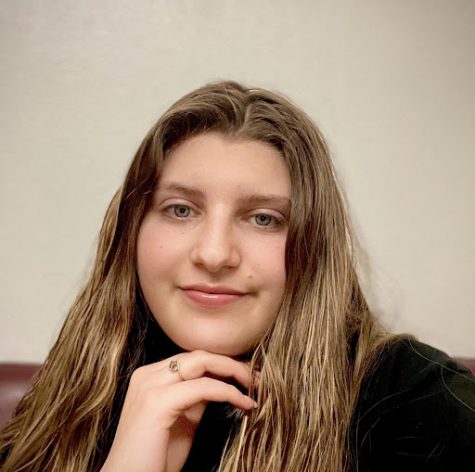Empires Fall Every 250 Years, and We’re Next
Many empires have been observed throughout their life cycle from the beginning, peak, and then to the inevitable end. The Romans, the Ottomans, the Greeks, the British, and the Persians have all risen to their climax of power and then fallen. This does not mean that they ceased to exist or that they were completely demolished, but it does mean that they had begun the cycle once more. Considering the current state of the U.S. in terms of politics, economy, and society, the majority of people are wondering what the future holds. In my opinion, it’s not headed in a positive direction.
The person responsible for coming up with the 250-year rule is John Glubb in his work, The Fate of Empires. He has been described as an obscure man with even more obscure works, yet, he has been proven right over the last few centuries.
Many philosophers and historians have studied these cycles and found that there are signs to indicate the fall. These may include increased inequality, economic collapse, growing hatred, increased military spending, the decline in the currency, and government inadequacy. I believe we can see some of these present in today’s government and society. Let’s compare these with the U.S. today.
The first characteristic, increased inequality, does not completely mean what first comes to mind, which is in terms of race, gender, etc. It can also refer to an economical way to speak on the functioning system set in place or, in this case, dysfunctioning. The phrase, “The rich are getting richer, and the poor are getting poorer,” is a great way to describe this. As the U.S. keeps issuing tax cuts for those in the highest tax brackets, this trend will continue. This includes large corporations. Amazon pays little to no taxes for a corporation with a net income of 33.364 billion in 2021, while the middle and lower classes are riddled with taxes.
The top 1% have enough money to solve a number of world issues and still make all the money back after. One example is Elon Musk’s infamous conflict with the United Nations. David Beasley, head of the U.N. Food Agency, swiftly called him out about earning $36 billion in one day by tweeting, “1/6 of your one-day increase would save 42 million lives that are knocking on famine’s door…” according to an NPR article. Elon Musk replied with a dare that the WFP should show him their plans for solving world hunger and he will sell Tesla stock and donate. A few weeks later, a donation of 5.74 billion was made to the cause by Musk. This will aid millions of starving people around the world. However, is it truly his responsibility? If the government knew how to properly control its economy, it wouldn’t need Elon Musk to donate such a large amount of money to feed its people.
Growing hatred is something that applies directly but also fits into other categories such as government inadequacy. It was just two years ago that the biggest protest in U.S. history happened, a march for George Floyd’s death, topping the Women’s March in 2017. However, I feel the government hasn’t done much to solve the problem. I still see neighborhoods with people of color over-policed—as if they expect people to break the law simply because of where they live and who they are. This is present in the Antelope Valley and my own neighborhood. There is a much greater number of police cars and patrols on the East side of Lancaster (which is predominantly occupied by people of color) than on the West side. As soon as I cross Division Street to and from school, I automatically recognize the shift. Despite everyone protesting for so long about this issue, we have taken steps that are so small that it’s still just an ideology rather than law or policy. If a government built on democracy does not listen to its majority of people who supposedly ‘have the power to shape their own country,’ then is it really a democracy?
Another one of the signs is government inadequacy. The electoral college has been questioned on its efficacy for years. There are pros and cons to direct and representative democracies, but it seems to me that as the years go on, the people have less input on what they would like their country to look like. However, we are getting bolder with protests and speaking out, especially after the overturning of Roe V. Wade. We still have people holding on to their positions in government after serving for decades and resisting change in order to preserve their individual power. The supreme court has justices like Clarence Thomas who have served for almost 31 years. He has made his stance clear on abortion despite it not representing the wants of the general public. After all, according to Pew Research Center, 61% of Americans are pro-choice. I believe that if the government no longer serves the will of the people, it should be reconstructed in a way that supports those it governs.
The last characteristic is increased military spending. According to the Stockholm International Peace Research Institute, in 2021, the U.S. government spent 801 billion on military projects. This is more than the following five countries combined on the list, including Russia, India, the U.K., Germany, and China. The United States takes up 38% of military spending worldwide. Considering there are 196 countries, I would say that’s a lot more than necessary. To put into perspective, countries that are deep into decade-long wars do not spend as much as the United States on the military.
In my opinion, the characteristics mentioned seem to fit the United States perfectly, so the question now is: how close are we? If we were to base it upon the time that the Declaration of Independence was signed in 1776, which solidified the United States’ independence as its own country, that would place us in the year 246. This implies that the U.S.’s power is coming to an end in 2026. With the increase in tension over the past few years, I wouldn’t be surprised if something large took place that shifted the U.S. as a global power. As a high school senior, I won’t even be graduating college until 2027. Perhaps it might be wiser to start looking into universities abroad.

Hello readers! My name is Jowail Mbarkeh, and I’m a senior at QHHS. This is my first year on the Ubiquity staff, and I'm already amazed at all the work...







